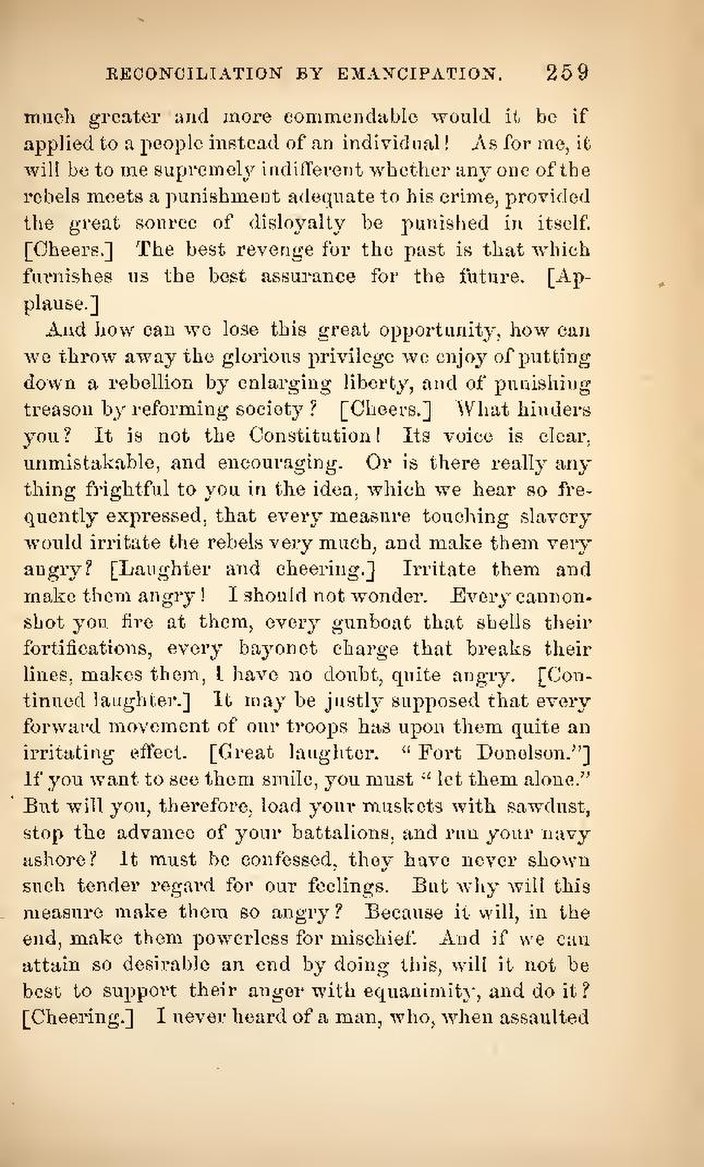much greater and more commendable would it be if applied to a people instead of an individual! As for me, it will be to me supremely indifferent whether any one of the rebels meets a punishment adequate to his crime, provided the great source of disloyalty be punished in itself. [Cheers.] The best revenge for the past is that which furnishes us the best assurance for the future. [Applause.]
And how can we lose this great opportunity, how can we throw away the glorious privilege we enjoy of putting down a rebellion by enlarging liberty, and of punishing treason by reforming society? [Cheers.] What hinders you? It is not the Constitution! Its voice is clear, unmistakable, and encouraging. Or is there really any thing frightful to you in the idea, which we hear so frequently expressed, that every measure touching slavery would irritate the rebels very much, and make them very angry? [Laughter and cheering.] Irritate them and make them angry! I should not wonder. Every cannon-shot you fire at them, every gunboat that shells their fortifications, every bayonet charge that breaks their lines, makes them, I have no doubt, quite angry. [Continued laughter.] It may be justly supposed that every forward movement of our troops has upon them quite an irritating effect. [Great laughter. “Fort Donelson.”] If you want to see them smile, you must “let them alone.” But will you, therefore, load your muskets with sawdust, stop the advance of your battalions, and run your navy ashore? It must be confessed, they have never shown such tender regard for our feelings. But why will this measure make them so angry? Because it will, in the end, make them powerless for mischief. And if we can attain so desirable an end by doing this, will it not be best to support their anger with equanimity, and do it? [Cheering.] I never heard of a man, who, when assaulted
